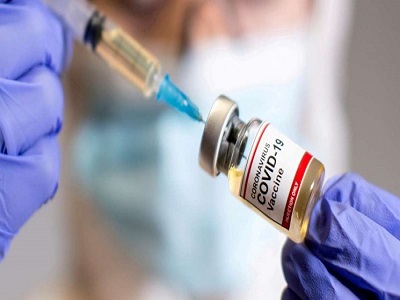Frequent questions about CoVID-19 vaccination
Vaccines are one of the most effective tools to control the COVID-19 pandemic. They are a safe and effective way to protect the health and wellbeing of society. Vaccines stimulate the body to build resistance to infection and strengthen the immune system by training it to form antibodies to fight the virus that causes COVID-19. These vaccines may differ in technology but all of them do the same work in raising the body’s immune system.
It is important to understand that COVID-19 vaccines are able to create an immune response without causing the illness and that the COVID-19 vaccines do not contain a live virus.
All vaccines are subject to adequate testing and go through several stages of pre-clinical and clinical trials before they are approved for use.
Vaccine Side Effects
It is normal to have minor side effects during the first week after receiving the vaccine and these symptoms are common when taking any type of vaccine. Symptoms can persist for a month and are likely to be more severe after taking the second dose because your immune system recognizes the method of attacking the COVID-19 virus.
· Fatigue and headaches
· Fever
· Pain, swelling, or redness at the injection site
· Joint pain
· Vomiting and diarrhea
· Shivering
· Muscle pain
Frequently-asked questions
It is too early to determine how long this vaccine will be effective and the duration of its effectiveness. We will provide more information in this regard once it is available.
If a patient has an active COVID-19 infection, the patient must wait until the completion of the isolation period to be vaccinated. If the infection was moderate or severe and required hospitalization, the timeframe for vaccination after infection will depend on the decision of the medical team that treated the patient. However, all mild cases or cases without symptoms can take the vaccine after completion of the isolation period.
There is no association between receiving the vaccine and the result of the PCR examination since the vaccine does not cause COVID-19.
The decision on what vaccine to select is a personal choice. However, please note that all vaccines available in the country are highly efficient, safe, and effective.
It is NOT recommended to take more than one type of vaccine for one disease in the same period, additionally; there is no scientific evidence that determines the period between one type of vaccine and another until now. Therefore, please ensure you take both doses of the same vaccine.
No, it is preferable to delay the vaccination by 4-8 weeks after recovery.
Yes, all precautionary measures need to be followed even after taking the COVID-19 vaccine, including wearing a face mask, maintaining hand hygiene at all times, and physical distancing between you and others. The official health authorities will announce any changes in this regard.
Yes, vaccination is safe, effective, and indicated for people with chronic diseases as they are at a higher risk of developing COVID-19 complications.
Your attending physician will inform you if you have any specific contraindications to take the vaccine.
Your attending physician will guide you on the safety of the process prior to taking the vaccine. Provide your physician with your detailed medical history and list of medications. In addition, please make sure you inform your physician if you are allergic to any medications or have any other allergies.
To date, no studies or evidence have shown that the corona vaccine reduces fertility in men and has no scientific basis.


